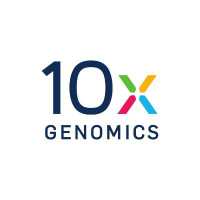VEEV

Veeva Systems Inc.
VEEV
(2.5)214,71 USD
10.54% ROA
13.17% ROE
53.73x PER
33.105.786.960,00 USD
1.04% DER
0% Yield
25.07% NPM
Veeva Systems Inc. Stock Analysis
Veeva Systems Inc. Fundamental Analysis
Fundamental analysis in stock investing is like studying the foundation of a house before buying it. It involves looking at a company's financial health, like its earnings, assets, and debts, to determine if it's a good investment based on its fundamental strength and potential for growth.
| # | Analysis | Rating |
|---|---|---|
| 1 |
ROA
This stock has a great ability to make a lot of money from the things it owns, which makes it a really good investment for smart investors. |
|
| 2 |
DER
The stock has a low debt to equity ratio (1%), which means it has a small amount of debt compared to the ownership it holds |
|
| 3 |
Revenue Growth
With a track record of consistent revenue growth in the past five years, this company presents a compelling opportunity. |
|
| 4 |
Assets Growth
With continuous growth in revenue over the last five years, this company has proven to be a lucrative investment option, showcasing its strong financial performance. |
|
| 5 |
ROE
The stock's ROE falls within an average range (14.19%), demonstrating satisfactory profitability and efficiency in utilizing shareholders' equity. |
|
| 6 |
Buffet Intrinsic Value
Warren Buffett's formula suggests that the company's stock is undervalued (797), making it an appealing investment prospect with its intrinsic value surpassing the current market price. |
|
| 7 |
PBV
The stock's high Price-to-Book Value (P/BV) ratio (6.82x) suggests it's overvalued, potentially making it an expensive investment. |
|
| 8 |
Net Profit Growth
The net profit of this company has shown no signs of growth over the last five years, suggesting limited profitability and making it a less attractive investment opportunity. |
|
| 9 |
Graham Number
The Graham number calculation reveals that this company's stock price is potentially inflated, implying that it may not be a desirable investment option. |
|
| 10 |
Dividend Growth
Investors should note the company's stagnant dividend growth over the past three years, indicating limited profitability and potentially diminishing returns. |
|
| 11 |
Dividend
The company has not distributed any dividends in the past three years, which may raise concerns for investors looking for regular income from their investments. |
Veeva Systems Inc. Technical Analysis
Technical analysis in stock investing is like reading the patterns on a weather map to predict future weather conditions. It involves studying past stock price movements and trading volumes to make predictions about where a stock's price might go next, without necessarily looking at the company's financial health.
| # | Analysis | Recommendation |
|---|---|---|
| 1 | Awesome Oscillator | Buy |
| 2 | MACD | Buy |
| 3 | RSI | Hold |
| 4 | Stoch RSI | Sell |
Veeva Systems Inc. Price Chart
Financial Statements
Financial statements are like report cards for companies. They show how much money a company makes (income statement), what it owns and owes (balance sheet), and where it spends its money (cash flow statement), helping stock investors understand if a company is healthy and worth investing in.
Income Statements
An income statement for a company is like a scoreboard for its profits and losses. It shows how much money the company made (revenue) and how much it spent to make that money (expenses), helping stock investors see if a company is making a profit or not.
Revenue in stock investing is the total amount of money a company earns from its sales, and it's a key factor that investors consider to assess a company's financial performance and growth potential.
| Year | Revenue | Growth |
|---|---|---|
| 2011 | 29.129.000 | |
| 2012 | 61.262.000 | 52.45% |
| 2013 | 129.548.000 | 52.71% |
| 2014 | 210.151.000 | 38.35% |
| 2015 | 313.222.000 | 32.91% |
| 2016 | 409.221.000 | 23.46% |
| 2017 | 544.043.000 | 24.78% |
| 2018 | 685.571.000 | 20.64% |
| 2019 | 862.210.000 | 20.49% |
| 2020 | 1.104.081.000 | 21.91% |
| 2021 | 1.465.069.000 | 24.64% |
| 2022 | 1.850.777.000 | 20.84% |
| 2023 | 2.155.060.000 | 14.12% |
| 2024 | 2.466.020.000 | 12.61% |
| 2024 | 2.363.673.000 | -4.33% |
| 2025 | 2.704.724.000 | 12.61% |
Research and Development Expenses are the costs a company incurs to create and improve its products or services, which can be important for investors to evaluate a company's innovation and potential for future growth.
| Year | Research and Development Expenses | Growth |
|---|---|---|
| 2011 | 3.637.000 | |
| 2012 | 7.750.000 | 53.07% |
| 2013 | 14.638.000 | 47.06% |
| 2014 | 26.327.000 | 44.4% |
| 2015 | 41.156.000 | 36.03% |
| 2016 | 65.976.000 | 37.62% |
| 2017 | 96.750.000 | 31.81% |
| 2018 | 132.051.000 | 26.73% |
| 2019 | 158.783.000 | 16.84% |
| 2020 | 209.895.000 | 24.35% |
| 2021 | 294.220.000 | 28.66% |
| 2022 | 382.035.000 | 22.99% |
| 2023 | 520.278.000 | 26.57% |
| 2024 | 645.112.000 | 19.35% |
| 2024 | 629.031.000 | -2.56% |
| 2025 | 705.604.000 | 10.85% |
General and Administrative Expenses are the costs a company incurs to run its day-to-day operations, such as office rent, salaries, and utilities, which investors consider to understand a company's overall efficiency and management effectiveness.
| Year | General and Administrative Expenses | Growth |
|---|---|---|
| 2011 | 2.513.000 | |
| 2012 | 5.539.000 | 54.63% |
| 2013 | 8.371.000 | 33.83% |
| 2014 | 20.411.000 | 58.99% |
| 2015 | 30.239.000 | 32.5% |
| 2016 | 41.458.000 | 27.06% |
| 2017 | 48.841.000 | 15.12% |
| 2018 | 60.391.000 | 19.13% |
| 2019 | 86.413.000 | 30.11% |
| 2020 | 114.267.000 | 24.38% |
| 2021 | 149.113.000 | 23.37% |
| 2022 | 171.507.000 | 13.06% |
| 2023 | 217.595.000 | 21.18% |
| 2024 | 249.132.000 | 12.66% |
| 2024 | 246.545.000 | -1.05% |
| 2025 | 245.460.000 | -0.44% |
EBITDA stands for Earnings Before Interest, Taxes, Depreciation, and Amortization. It is a measure that helps stock investors analyze a company's profitability by looking at its earnings without considering certain expenses. This helps to get a clearer picture of the company's financial performance and its ability to generate cash flow.
| Year | EBITDA | Growth |
|---|---|---|
| 2011 | 5.310.000 | |
| 2012 | 7.045.000 | 24.63% |
| 2013 | 30.822.000 | 77.14% |
| 2014 | 41.714.000 | 26.11% |
| 2015 | 73.895.000 | 43.55% |
| 2016 | 87.053.000 | 15.11% |
| 2017 | 121.793.000 | 28.52% |
| 2018 | 179.471.000 | 32.14% |
| 2019 | 236.937.000 | 24.25% |
| 2020 | 286.219.000 | 17.22% |
| 2021 | 407.249.000 | 29.72% |
| 2022 | 505.496.000 | 19.44% |
| 2023 | 488.213.000 | -3.54% |
| 2024 | 547.412.000 | 10.81% |
| 2024 | 461.962.000 | -18.5% |
| 2025 | 720.924.000 | 35.92% |
Gross profit is the money a company makes from selling its products or services after subtracting the cost of producing or providing them, and it is an important measure for investors to understand a company's profitability.
| Year | Gross Profit | Growth |
|---|---|---|
| 2011 | 16.812.000 | |
| 2012 | 32.206.000 | 47.8% |
| 2013 | 72.532.000 | 55.6% |
| 2014 | 127.549.000 | 43.13% |
| 2015 | 197.564.000 | 35.44% |
| 2016 | 267.007.000 | 26.01% |
| 2017 | 370.362.000 | 27.91% |
| 2018 | 474.132.000 | 21.89% |
| 2019 | 616.929.000 | 23.15% |
| 2020 | 800.712.000 | 22.95% |
| 2021 | 1.056.141.000 | 24.19% |
| 2022 | 1.347.099.000 | 21.6% |
| 2023 | 1.545.655.000 | 12.85% |
| 2024 | 1.795.292.000 | 13.91% |
| 2024 | 1.686.382.000 | -6.46% |
| 2025 | 2.008.712.000 | 16.05% |
Net income in stock investing is like the money a company actually gets to keep as profit after paying all its bills, and it's an important measure to understand how well a company is doing financially.
| Year | Net Profit | Growth |
|---|---|---|
| 2011 | 3.909.000 | |
| 2012 | 4.230.000 | 7.59% |
| 2013 | 18.783.000 | 77.48% |
| 2014 | 23.615.000 | 20.46% |
| 2015 | 40.383.000 | 41.52% |
| 2016 | 54.460.000 | 25.85% |
| 2017 | 68.804.000 | 20.85% |
| 2018 | 141.966.000 | 51.53% |
| 2019 | 229.832.000 | 38.23% |
| 2020 | 301.118.000 | 23.67% |
| 2021 | 379.998.000 | 20.76% |
| 2022 | 427.390.000 | 11.09% |
| 2023 | 487.706.000 | 12.37% |
| 2024 | 540.632.000 | 9.79% |
| 2024 | 525.705.000 | -2.84% |
| 2025 | 684.164.000 | 23.16% |
EPS, or earnings per share, is a measure that shows how much profit a company has earned for each outstanding share of its stock, and it is important for stock investors as it helps understand the profitability of a company and compare it with other companies in the market.
| Year | Earning per Share (EPS) | Growth |
|---|---|---|
| 2011 | 0 | |
| 2012 | 0 | 0% |
| 2013 | 0 | 0% |
| 2014 | 0 | 0% |
| 2015 | 0 | 0% |
| 2016 | 0 | 0% |
| 2017 | 1 | 0% |
| 2018 | 1 | 100% |
| 2019 | 1 | 0% |
| 2020 | 2 | 50% |
| 2021 | 3 | 0% |
| 2022 | 3 | 0% |
| 2023 | 3 | 33.33% |
| 2024 | 3 | 0% |
| 2024 | 3 | 0% |
| 2025 | 4 | 25% |
Cashflow Statements
Cashflow statements show the movement of money in and out of a company, helping stock investors understand how much money a company makes and spends. By examining cashflow statements, investors can assess if a company is generating enough cash to pay its bills, invest in growth, and provide returns to stockholders.
Free cash flow is the leftover cash that a company generates after covering its operating expenses and capital expenditures, which is important for stock investors as it shows how much money a company has available to invest in growth, pay dividends, or reduce debt.
| Year | Free Cashflow | Growth |
|---|---|---|
| 2011 | 4.321.000 | |
| 2012 | 3.543.000 | -21.96% |
| 2013 | 29.245.000 | 87.89% |
| 2014 | 38.776.000 | 24.58% |
| 2015 | 40.182.000 | 3.5% |
| 2016 | 58.002.000 | 30.72% |
| 2017 | 136.504.000 | 57.51% |
| 2018 | 222.071.000 | 38.53% |
| 2019 | 301.008.000 | 26.22% |
| 2020 | 433.054.000 | 30.49% |
| 2021 | 551.813.000 | 21.52% |
| 2022 | 761.974.000 | 27.58% |
| 2023 | 777.981.000 | 2.06% |
| 2024 | 82.598.000 | -841.89% |
| 2024 | 885.143.000 | 90.67% |
| 2025 | 89.822.000 | -885.44% |
Operating cash flow represents the cash generated or consumed by a company's day-to-day operations, excluding external investing or financing activities, and is crucial for stock investors as it shows how much cash a company is generating from its core business operations.
| Year | Operating Cashflow | Growth |
|---|---|---|
| 2011 | 4.903.000 | |
| 2012 | 4.736.000 | -3.53% |
| 2013 | 30.799.000 | 84.62% |
| 2014 | 41.753.000 | 26.24% |
| 2015 | 67.574.000 | 38.21% |
| 2016 | 80.154.000 | 15.69% |
| 2017 | 144.011.000 | 44.34% |
| 2018 | 233.438.000 | 38.31% |
| 2019 | 310.827.000 | 24.9% |
| 2020 | 437.375.000 | 28.93% |
| 2021 | 551.246.000 | 20.66% |
| 2022 | 764.463.000 | 27.89% |
| 2023 | 780.470.000 | 2.05% |
| 2024 | 82.598.000 | -844.9% |
| 2024 | 911.339.000 | 90.94% |
| 2025 | 92.874.000 | -881.26% |
Capex, short for capital expenditures, refers to the money a company spends on acquiring or upgrading tangible assets like buildings, equipment, or technology, which is important for stock investors as it indicates how much a company is investing in its infrastructure to support future growth and profitability.
| Year | Capital Expenditure | Growth |
|---|---|---|
| 2011 | 582.000 | |
| 2012 | 1.193.000 | 51.22% |
| 2013 | 1.554.000 | 23.23% |
| 2014 | 2.977.000 | 47.8% |
| 2015 | 27.392.000 | 89.13% |
| 2016 | 22.152.000 | -23.65% |
| 2017 | 7.507.000 | -195.08% |
| 2018 | 11.367.000 | 33.96% |
| 2019 | 9.819.000 | -15.77% |
| 2020 | 4.321.000 | -127.24% |
| 2021 | -567.000 | 862.08% |
| 2022 | 2.489.000 | 122.78% |
| 2023 | 2.489.000 | 0% |
| 2024 | 0 | 0% |
| 2024 | 26.196.000 | 100% |
| 2025 | 3.052.000 | -758.32% |
Balance Sheet
Balance sheets provide a snapshot of a company's financial health and its assets (such as cash, inventory, and property) and liabilities (like debts and obligations) at a specific point in time. For stock investors, balance sheets help assess the company's overall worth and evaluate its ability to meet financial obligations and support future growth.
Equity refers to the ownership interest or stake that shareholders have in a company, representing their claim on its assets and earnings after all debts and liabilities are paid.
| Year | Equity | Growth |
|---|---|---|
| 2012 | 14.103.000 | |
| 2013 | 33.966.000 | 58.48% |
| 2014 | 280.096.000 | 87.87% |
| 2015 | 406.833.000 | 31.15% |
| 2016 | 505.249.000 | 19.48% |
| 2017 | 652.978.000 | 22.62% |
| 2018 | 871.527.000 | 25.08% |
| 2019 | 1.237.749.000 | 29.59% |
| 2020 | 1.665.594.000 | 25.69% |
| 2021 | 2.266.320.000 | 26.51% |
| 2022 | 2.911.637.000 | 22.16% |
| 2023 | 3.716.252.000 | 21.65% |
| 2024 | 4.379.773.000 | 15.15% |
| 2024 | 4.644.824.000 | 5.71% |
| 2025 | 5.184.698.000 | 10.41% |
Assets represent the valuable resources that a company owns, such as cash, inventory, property, and equipment, and understanding a company's assets helps investors assess its value and potential for generating future profits.
| Year | Assets | Growth |
|---|---|---|
| 2012 | 41.414.000 | |
| 2013 | 89.820.000 | 53.89% |
| 2014 | 370.308.000 | 75.74% |
| 2015 | 544.890.000 | 32.04% |
| 2016 | 705.799.000 | 22.8% |
| 2017 | 917.700.000 | 23.09% |
| 2018 | 1.200.487.000 | 23.56% |
| 2019 | 1.653.766.000 | 27.41% |
| 2020 | 2.271.777.000 | 27.2% |
| 2021 | 3.046.067.000 | 25.42% |
| 2022 | 3.816.465.000 | 20.19% |
| 2023 | 4.804.296.000 | 20.56% |
| 2024 | 5.225.772.000 | 8.07% |
| 2024 | 5.910.920.000 | 11.59% |
| 2025 | 6.330.837.000 | 6.63% |
Liabilities refer to the financial obligations or debts that a company owes to creditors or external parties, and understanding a company's liabilities is important for investors as it helps assess the company's financial risk and ability to meet its obligations.
| Year | Liabilities | Growth |
|---|---|---|
| 2012 | 27.311.000 | |
| 2013 | 55.854.000 | 51.1% |
| 2014 | 90.212.000 | 38.09% |
| 2015 | 138.057.000 | 34.66% |
| 2016 | 200.550.000 | 31.16% |
| 2017 | 264.722.000 | 24.24% |
| 2018 | 328.960.000 | 19.53% |
| 2019 | 416.017.000 | 20.93% |
| 2020 | 606.183.000 | 31.37% |
| 2021 | 779.747.000 | 22.26% |
| 2022 | 904.828.000 | 13.82% |
| 2023 | 1.088.044.000 | 16.84% |
| 2024 | 845.999.000 | -28.61% |
| 2024 | 1.266.096.000 | 33.18% |
| 2025 | 1.146.139.000 | -10.47% |
Veeva Systems Inc. Financial Ratio (TTM)
Valuation Metrics
- Revenue per Share
- 15.92
- Net Income per Share
- 3.8
- Price to Earning Ratio
- 53.73x
- Price To Sales Ratio
- 12.86x
- POCF Ratio
- 33.17
- PFCF Ratio
- 34.07
- Price to Book Ratio
- 6.38
- EV to Sales
- 12.43
- EV Over EBITDA
- 51.13
- EV to Operating CashFlow
- 32.1
- EV to FreeCashFlow
- 32.93
- Earnings Yield
- 0.02
- FreeCashFlow Yield
- 0.03
- Market Cap
- 33,11 Bil.
- Enterprise Value
- 31,99 Bil.
- Graham Number
- 52.39
- Graham NetNet
- 25
Income Statement Metrics
- Net Income per Share
- 3.8
- Income Quality
- 1.62
- ROE
- 0.13
- Return On Assets
- 0.1
- Return On Capital Employed
- 0.11
- Net Income per EBT
- 0.78
- EBT Per Ebit
- 1.34
- Ebit per Revenue
- 0.24
- Effective Tax Rate
- 0.22
Margins
- Sales, General, & Administrative to Revenue
- 0.09
- Research & Developement to Revenue
- 0.26
- Stock Based Compensation to Revenue
- 0.16
- Gross Profit Margin
- 0.74
- Operating Profit Margin
- 0.24
- Pretax Profit Margin
- 0.32
- Net Profit Margin
- 0.25
Dividends
- Dividend Yield
- 0
- Dividend Yield %
- 0
- Payout Ratio
- 0
- Dividend Per Share
- 0
Operating Metrics
- Operating Cashflow per Share
- 6.16
- Free CashFlow per Share
- 6.01
- Capex to Operating CashFlow
- 0.03
- Capex to Revenue
- 0.01
- Capex to Depreciation
- 0.6
- Return on Invested Capital
- 0.09
- Return on Tangible Assets
- 0.11
- Days Sales Outstanding
- 57.32
- Days Payables Outstanding
- 14.91
- Days of Inventory on Hand
- 0
- Receivables Turnover
- 6.37
- Payables Turnover
- 24.49
- Inventory Turnover
- 0
- Capex per Share
- 0.16
Balance Sheet
- Cash per Share
- 30,21
- Book Value per Share
- 32,06
- Tangible Book Value per Share
- 29.01
- Shareholders Equity per Share
- 32.06
- Interest Debt per Share
- 0.52
- Debt to Equity
- 0.01
- Debt to Assets
- 0.01
- Net Debt to EBITDA
- -1.78
- Current Ratio
- 5.01
- Tangible Asset Value
- 4,69 Bil.
- Net Current Asset Value
- 4,22 Bil.
- Invested Capital
- 4890452000
- Working Capital
- 4,30 Bil.
- Intangibles to Total Assets
- 0.08
- Average Receivables
- 0,40 Bil.
- Average Payables
- 0,03 Bil.
- Average Inventory
- 0
- Debt to Market Cap
- 0
Dividends
Dividends in stock investing are like rewards that companies give to their shareholders. They are a portion of the company's profits distributed to investors, typically in the form of cash payments, as a way for them to share in the company's success.
| Year | Dividends | Growth |
|---|
Veeva Systems Inc. Profile
About Veeva Systems Inc.
Veeva Systems Inc. provides cloud-based software for the life sciences industry in North America, Europe, the Asia Pacific, the Middle East, Africa, and Latin America. The company offers Veeva Commercial Cloud, a suite of software, data, and analytics solutions, which include Veeva customer relationship management (CRM) and Veeva Medical CRM, Veeva CLM, Veeva CRM MyInsights, Veeva CLM, Veeva CRM Approved Email, Veeva CRM Engage, Veeva Align, Veeva CRM Events Management, Veeva Nitro, Veeva OpenData, Veeva Link, Veeva Network, Veeva Crossix, Veeva Data Cloud, and MyVeeva for Patients; and Veeva Vault, a cloud-based enterprise content and data management applications for managing commercial functions, including sales and marketing, and medical content and communications, as well as research and development functions, such as clinical, regulatory, quality, and safety. It also provides professional and support services in the areas of implementation and deployment planning and project management; requirements analysis, solution design, and configuration; systems environment management and deployment services; services focused on advancing or transforming business and operating processes related to Veeva solutions; technical consulting services related to data migration and systems integrations; training on its solutions; and ongoing managed services that include outsourced systems administration. The company was formerly known as Verticals onDemand, Inc. and changed its name to Veeva Systems Inc. in April 2009. Veeva Systems Inc. was incorporated in 2007 and is headquartered in Pleasanton, California.
- CEO
- Mr. Peter P. Gassner
- Employee
- 7.172
- Address
-
4280 Hacienda Drive
Pleasanton, 94588
Veeva Systems Inc. Executives & BODs
| # | Name | Age |
|---|---|---|
| 1 |
Mr. Jonathan W. Faddis J.D. Senior Vice President, General Counsel & Corporate Secretary |
70 |
| 2 |
Mr. Peter P. Gassner Founder, Chief Executive Officer & Director |
70 |
| 3 |
Ms. Kristine B. Diamond Principal Accounting Officer |
70 |
| 4 |
Mr. Matthew Robinson Chief Technology Officer |
70 |
| 5 |
Mr. Gunnar Georg Hansen Director of Investor Relations |
70 |
| 6 |
Mr. Jacques Mourrain Ph.D. Vice President of Quality, Regulatory & Compliance |
70 |
| 7 |
Mr. Thomas D. Schwenger President & Chief Customer Officer |
70 |
| 8 |
Ms. Eleni Nitsa Zuppas President & Chief of Staff |
70 |
| 9 |
Mr. Brian Van Wagener Chief Financial Officer |
70 |
| 10 |
Mr. Pinal Patel Chief Information Officer |
70 |











